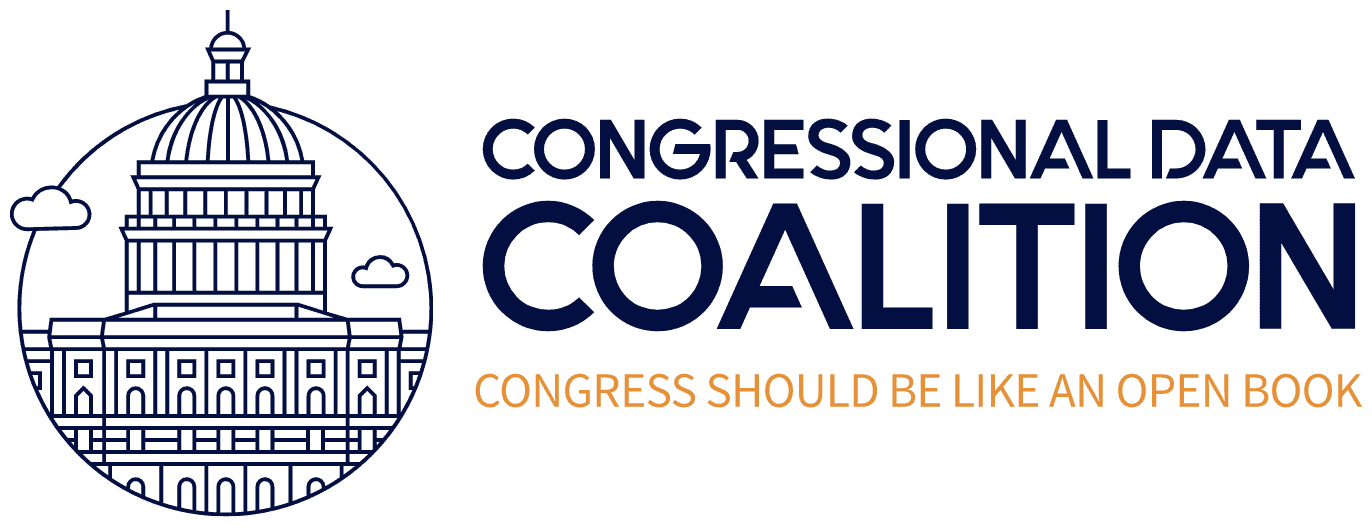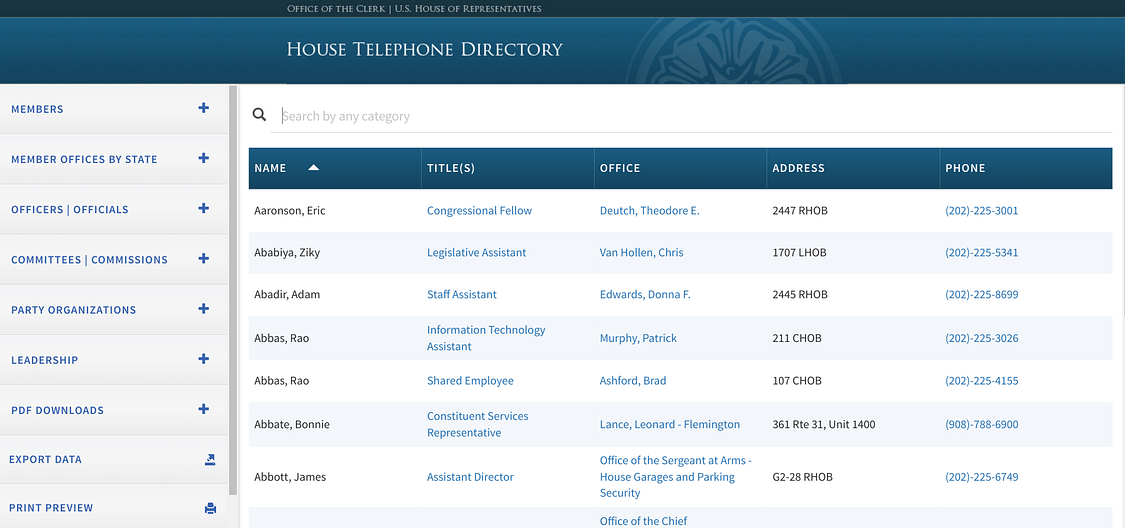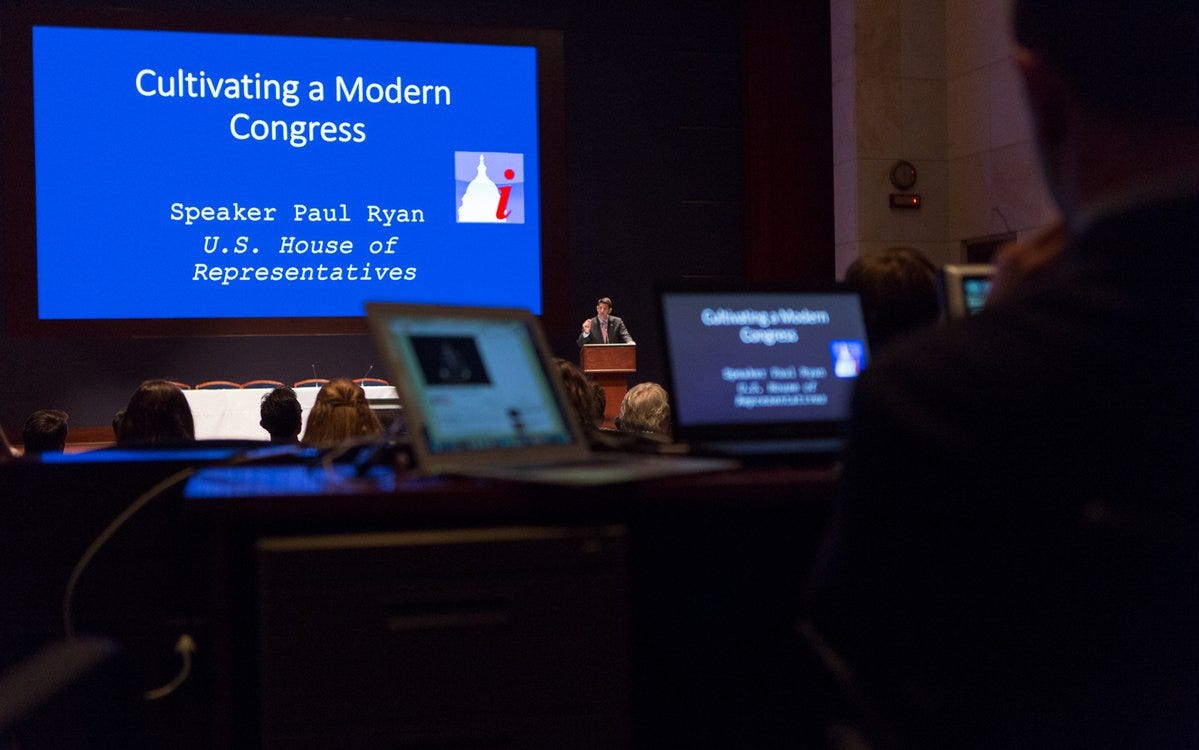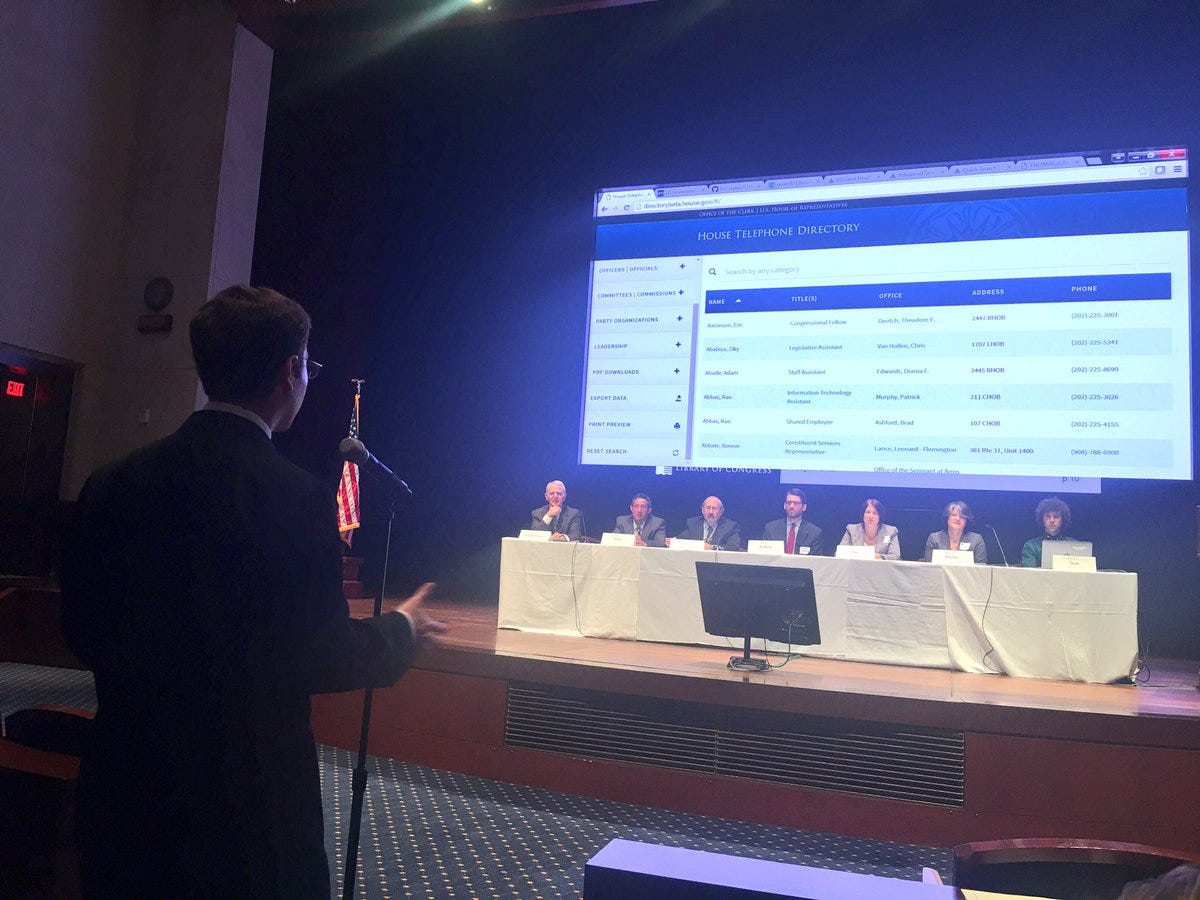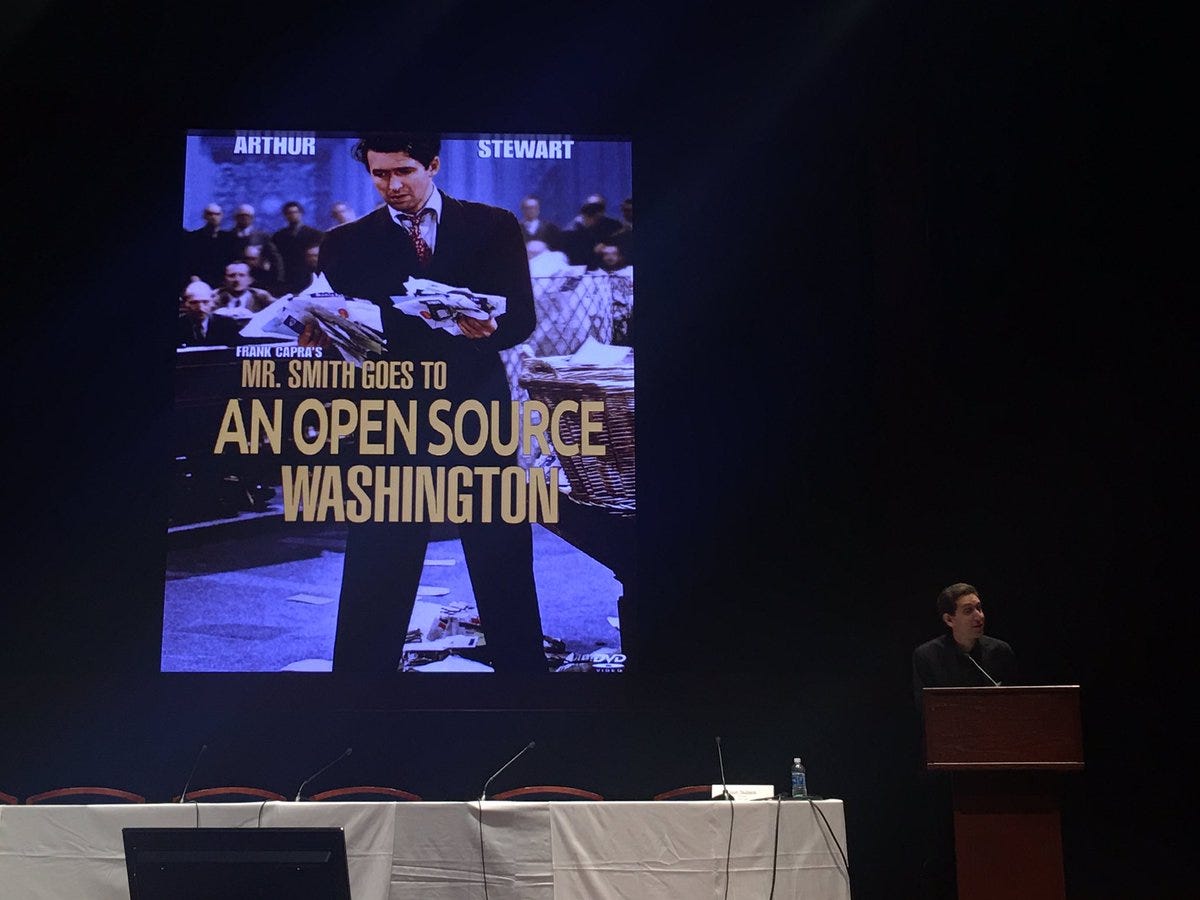Once again, at the start of the 115th Congress, the House of Representatives included an order in its rules package in support of public access to legislative information.
(m) BROADENING AVAILABILITY OF LEGISLATIVE DOCUMENTS IN MACHINE-READABLE FORMATS.—The Committee on House Administration, the Clerk, and other officers and officials of the House shall continue efforts to broaden the availability of legislative documents in machine readable formats in the One Hundred Fifteenth Congress in furtherance of the institutional priority of improving public availability and use of legislative information produced by the House and its committees.
What this means it the House of Representatives will continue–as a matter of policy–its work in making information about the legislative process available to the public.
As readers of this blog know, there has been a tremendous amount of progress in the last few years, including: publishing structured data about legislation, publication of bills and amendments to be considered by the Rules committee, the publication of the House’s rules as XML, publication of a House phone directory, publication of the U.S. code as structured data, publication of the committee hearing and markup schedule, online committee video, and more. And, even more remarkably, this is all being done on a bipartisan basis.
I’m looking forward to seeing what will be accomplished in the 115th Congress.
